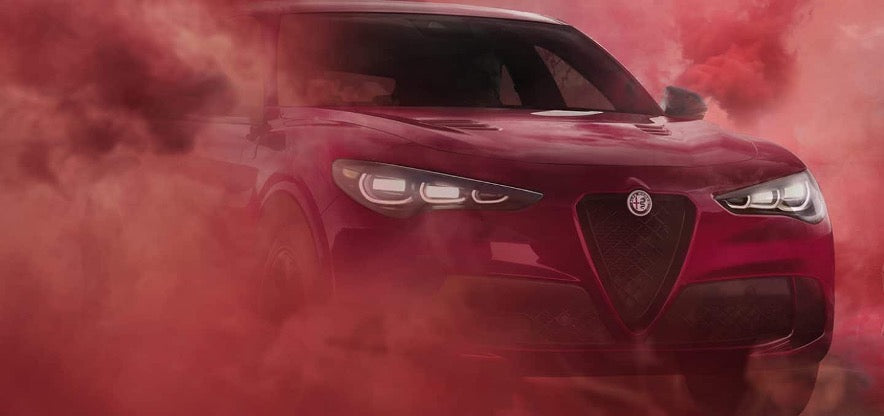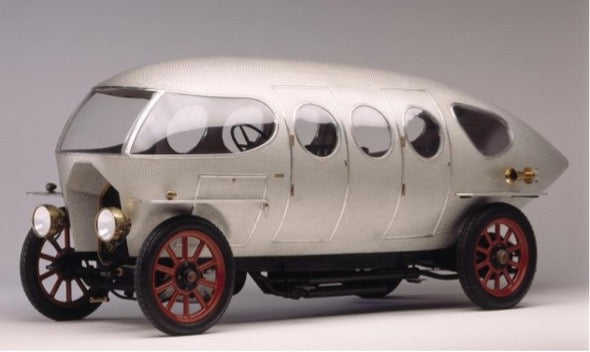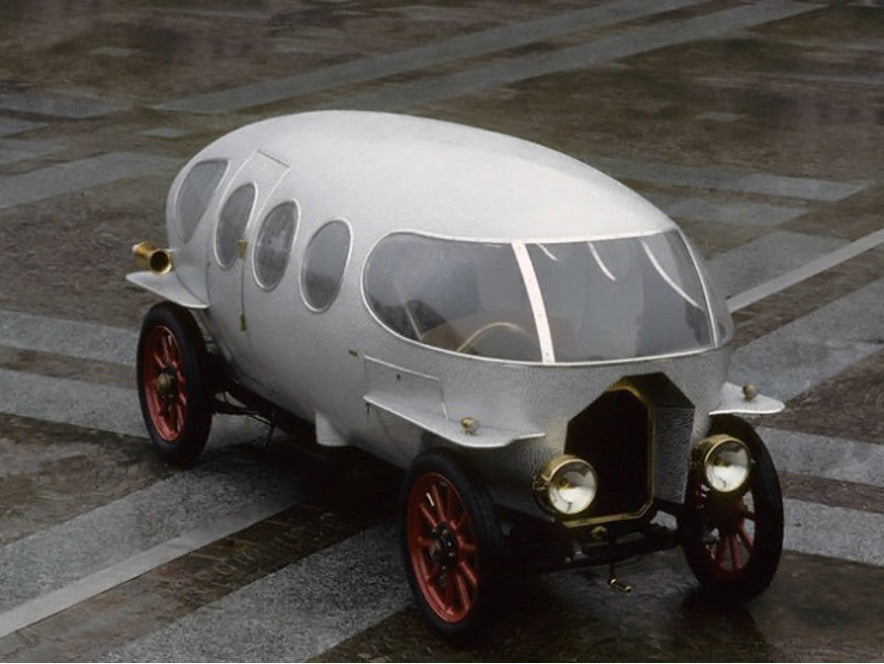Alfa Romeo opened its “eyes” in 1910 as A.L.F.A (Anónima Lombarda Fabbrica Automobili), financed by the same investors who backed up the previous company named Societa Italiana Automobili Darracq. We can say that it was part of the racing world almost since the beginning. The WW1 started in 1914 and the company was in trouble due that, but it was Nicola Romeo who saved the company in 1915, and in 1918 named the company as we know it nowadays.
A.L.F.A launched the Alfa 40/60 HP in 1913, designed by Giuseppe Merosi, as a response of those lovers of sport driving that repeatedly requested to the company to improve its current cars. The Italian company answered to that request and created the two-seats car with less accessories and equipped with a 6.082 cc in-line four-cylinder engine with overhead valves, capable to produce 70 hp (51 kW) and reaching a top speed of 125 km/h (about 78 mph). It also created a Corsa racing version developing 73 hp (54 kW) and reaching a top speed of 137 km/h (about 85mph). This version achieved prestigious victories after the WW1.
In 1914, the Count Mario Ricotti, a sport racing fan did not hesitate to purchase one of those, but there was a problem, it was just a two-seats car, and he wanted something never seen before, a family sports car.
Having that in mind, the Count decided to get a chassis of that model to develop something special. But to achieve his goal he would need help, so he contacted the famous coach builder Carlo Castagna, asking for his collaboration.
Castagna started out creating luxury carriages, but soon he began manufacturing custom bodyworks for motor vehicles. At that time, his company was pioneer on the automotive market and today it is one of the most interesting designers of customized vehicles.
The request made by the Count was something Carlo Castagna never thought about and that will be revolutionary. Even it seemed something impossible to do back then, Castagna saw the potential of this idea, accepted the challenge, and got on with it.
Count’s requests were based on his desires and interests: cars and spending time in a countryside with his family and friends. Then, he delivered a list of specifications which included a mix between squaring a circle and the definition of a minivan. The new Alfa 40/60 HP had to have five seats to transport his family and friends, a biggest and covered space for luggage, and keep the features the original model had.
The Siluro Ricotta came to light
It was both designed and built by Carlo Castagna. To manufacture it, Castagna chose aluminum damascened to lighten the weight and keep its maneuverability and power. The external design was an otherworldly teardrop shape anticipating current minivans but keeping the horse-drawn carriages aspect. The Siluro Ricotti used its aerodynamic shape to offer the least resistance to the air, offering greater performance than the sports cars of those days.
People could access to this unique vehicle through one of its three asymmetric side doors, two located on the right and one on the left. It was also equipped with three rounded windows on both sides and a triangular rear window, on both sides as well, to gaze at the Piedmonte landscape, where the Count love to relax.
The driver’s seat was a bit far from the front side. The driver enjoyed a large panoramic windshield which provided a wide and fantastic view of the road, but it had a drawback, it was too hot during the summer.
The cutout seen in the front of the one-off body we can appreciate a brass radiator and a hatch square door located just behind the front wheels allowing the access to the engine. The curved shape of this Castagna body and all the internal and external modifications represented a 14 km/hour increase in the top speed of the car, which produced a reported 150 km/hour (about 93 mph) top speed.
Finally, this unique creation was built on the largest and most powerful chassis available at that time, as mentioned before the Alfa 40/60 HP, with a wheelbase measure of 3.2 meters.
Even this unique car was a very imaginative creation, it worked. But due that the engine was enclosed together in the same space with passengers, it made it unbearable to drive. I think this caused the Count Ricotti removed the roof, causing a lost in its aerodynamics.
Well, that was how the Siluro Ricotti, the oddest Alfa Romeo family member, came to light. Thanks to a Count with a great imagination and expectations, and a very creative and proactive coach builder, making the aerodynamic body of this car the first minivan in the history. Nowadays, a replica of this car resides in the Alfa Romeo Historical Museum in Milan where car lovers can appreciate closer the uniqueness of this vehicle.
The Siluro Ricotti was key to introducing and strengthening the aerodynamics in the automotive world.
 2023 Alfa Romeo Stelvio Quadrifoglio
2023 Alfa Romeo Stelvio Quadrifoglio
Many people ask why makes Alfa Romeo so special? Well, as we can see, they accept challenges and are always creating and building unique cars with exceptional designs and great performance in a world where standing out is so difficult. They are also fan of collaborating with others to get the best of the best. A car that reaches 150 km/h (about 93 mph) top speed in 1914 was almost impossible. But they did it together.
Nowadays, the 2023 Alfa Romeo Stelvio Quadrifoglio has the fastest acceleration jetting from 0-to- 100 km/h (about 60 mph) in just 3.6 seconds; and the top speed record is held by the 2023 Alfa Romeo Giulia Quadrifoglio which boasted a 307 km/h (about 191 mph) top speed.
I hope this is a refreshing story for those car lovers who also love to know something of history about cars.
Remember, with your feet on earth while reaching your dreams!
Resources
- https://coverking.com/collections/custom-car-cover
- https://coverking.com/collections/custom-seat-cover
- https://coverking.com/collections/windshield-covers
- https://www.media.stellantis.com/es-es/alfa-romeo/press/110-anos-del-alfa-40-60-hp-pionero-de-la-aerodinamica-en-el-automovil
- https://www.fcaheritage.com/en-uk/brand/alfa-romeo-company?adobe_mc_ref=
- https://www.xataka.com/movilidad/quien-dijo-que-familiares-no-deportivos-alfa-romeo-tenia-uno-que-rozaba-140-km-h-hace-110-anos
- https://www.carrozzieri-italiani.com/listing/alfa-40-60-hp-aerodinamica-siluro-ricotti/
- https://www.alfaromeousa.com/suvs/stelvio/quadrifoglio/gallery





